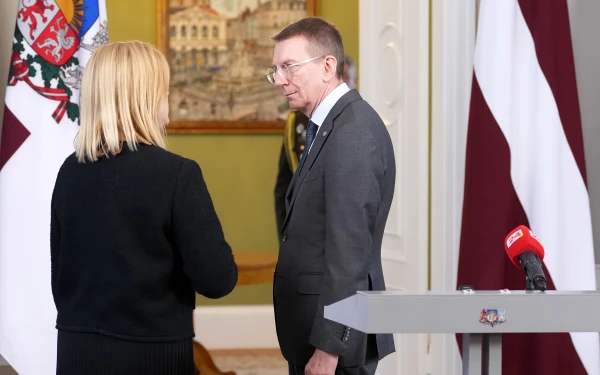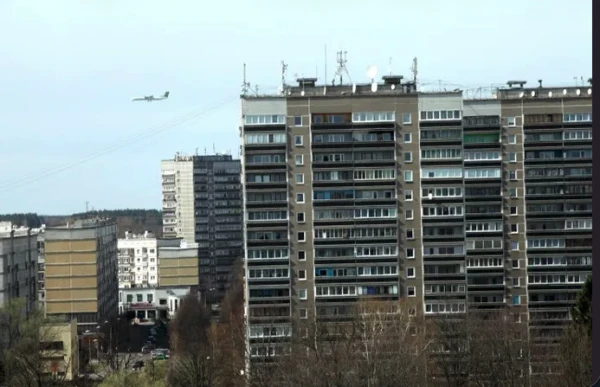
"This election campaign has started too early this time," Edgar Rinkēvičs lamented recently.
Sooner or later, the circumstances in the country have developed in such a way that the members of the Saeima, including or even primarily the ruling ones, if they still want to linger in this politics, must already today, a year before the elections, think about their own survival.
Mired in Concerns
There are at least five reasons that are tearing apart the Siliņa government from within.
The first reason — the economic situation is bleak, and there are no prerequisites for an economic boom to suddenly occur in the country as the elections approach. Therefore, today the same ruling politicians need to show voters their, albeit feigned, but concern for voters and readiness to address economic and social issues.
Next summer, during the peak of the election campaign, it will already be too late to do this.
Fathers and Children
The second reason — ideological contradictions or even ideological incompatibility between the two government partners — the Progressive Party and the Union of Greens and Farmers.
The electorate of the Progressives cannot stand the Greens and Farmers, who in the view of Progressive voters represent some elderly party functionaries connected with oligarchs and living with the ideas of the 1990s.
In turn, the voters of the Greens and Farmers do not understand the voters of the Progressives — they do not understand and do not accept their "values" — the emphasis on sexual minorities and the notorious Istanbul Convention. All this creates nervousness within the coalition as the elections approach — the same Greens and Farmers realize that their voter may ultimately not forgive a marriage of convenience with representatives, metaphorically speaking, of the LGBT community.
Natural Selection
The third reason — in each of the three ruling parties, there are various centers of influence, various, one might say, factions — with their own opinions and interests. This means that it is extremely difficult for the leadership of, for example, the Unity party to "discipline" their own deputies in the Saeima, who are already thinking about their own survival.
It's simple: in this Saeima, Unity initially had 26 mandates. However, Unity is not a monolith but a political union that includes regional parties.
It is clear to everyone that in the next Saeima, Unity will be lucky to have half of today's number of parliamentary mandates — that is, at best 13 mandates. It is obvious that internal competition will be even tougher; the "competition" for one parliamentary seat from Unity will be akin to competition for the best universities in the world. This means that the struggle for a place in the sun must begin before the official election campaign.
Ripping Soles on the Go
The fourth reason — "external" competition. Especially on the right flank, where the same Greens and Farmers are being pressured by no less experienced politicians from the National Alliance and the United List. They will use any mistake, any slightest blunder of the Greens and Farmers.
The Smell of Money
And finally, the fifth reason — political aggressiveness long before the start of the election campaign allows killing two birds with one stone: reminding voters of themselves, gaining certain political dividends from this, and attempting to secure various financial resources in the 2026 budget for political priorities.
By the way, the Greens and Farmers have already managed to achieve something with their demarches in the context of the 2026 budget — as a reminder, from July next year until the end of June 2027, a reduced VAT rate of 12% will be introduced on bread, milk, eggs, and poultry meat. Surely, the Prime Minister and the Minister of Finance (both from Unity) will accommodate the Greens and Farmers regarding the issue of maintaining rural schools. And let the Progressives accuse the Greens and Farmers of blackmail a hundred times, the main thing in this case is the result.
Patience Will Lead to Love
One way or another, an early start to the election campaign does not mean that coalition partners will start to destroy the government BEFORE THE BUDGET IS ADOPTED. Again, both the Greens and Farmers and the Progressives want to participate in the division of the budget pie. Moreover, those who become the undertakers of this government will surely not make it into the next government.
According to rumors from the corridors of parliament, the "rebels in power" — the Union of Greens and Farmers — do not intend to destroy the government, as this usually does not please the conservative voter. Even if voters are dissatisfied with the government, they still react psychologically poorly to chaos, lawlessness, and uncertainty. This means that the Greens and Farmers will continue to "quarrel," push their agenda, but will not leave the government. At least, they will not leave until the 2026 budget is adopted.
Of course, it cannot be ruled out that at the beginning of next year, the partners in power will quarrel so much that they will no longer be able to sit together at the same table. In this case, attempts may be made to create a new government before the elections — in this Saeima, there are at least two other options for a different ruling coalition.
The Sick Will Be Replaced at the Crossing
But let’s not get ahead of ourselves and return to the current situation, that is, to the necessity of adopting the 2026 budget. At the last coalition council, the partners, after the squabbles over the notorious Istanbul Convention, discussed options for ensuring a majority in the Saeima when adopting the 2026 budget, the budget package, and other important bills for the coalition.
In particular, the leaders of the ruling parties will persuade those of their deputies in the Saeima who, due to health reasons, have not been able to attend plenary sessions for a long time, to resign their mandates so that the next healthy candidates on the list can take their place.
Also, during the consideration of important bills in parliament, including the 2026 budget, all foreign trips of ruling deputies will be canceled, and, of course, during these days of plenary sessions, deputies from the ruling coalition will not be required to take unpaid leave.
Will all these "medicines" help ensure the adoption of the main financial law of the country? We shall see. Let’s remind: if the Saeima does not adopt the country’s budget in the first or second reading, the government automatically is considered to have resigned!














